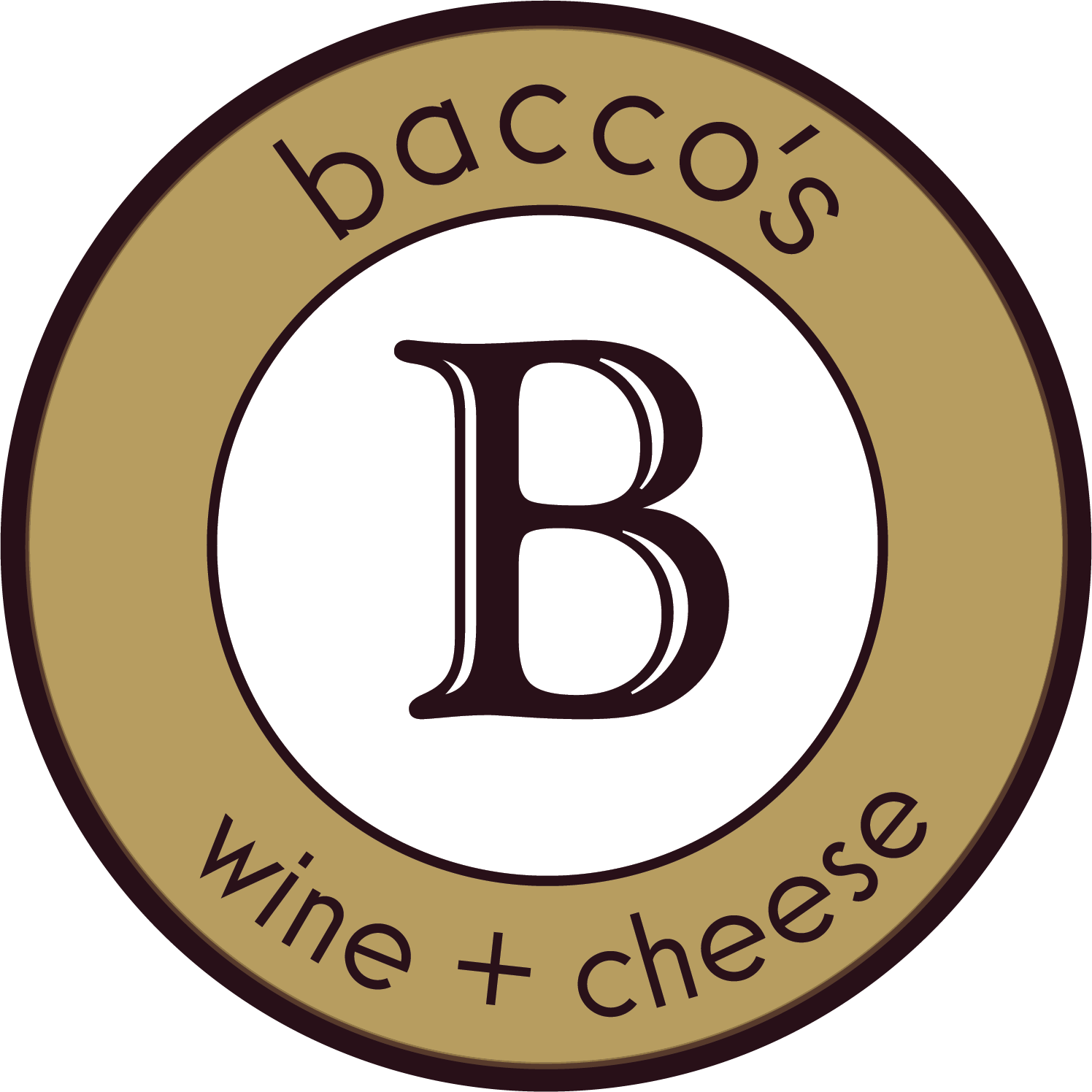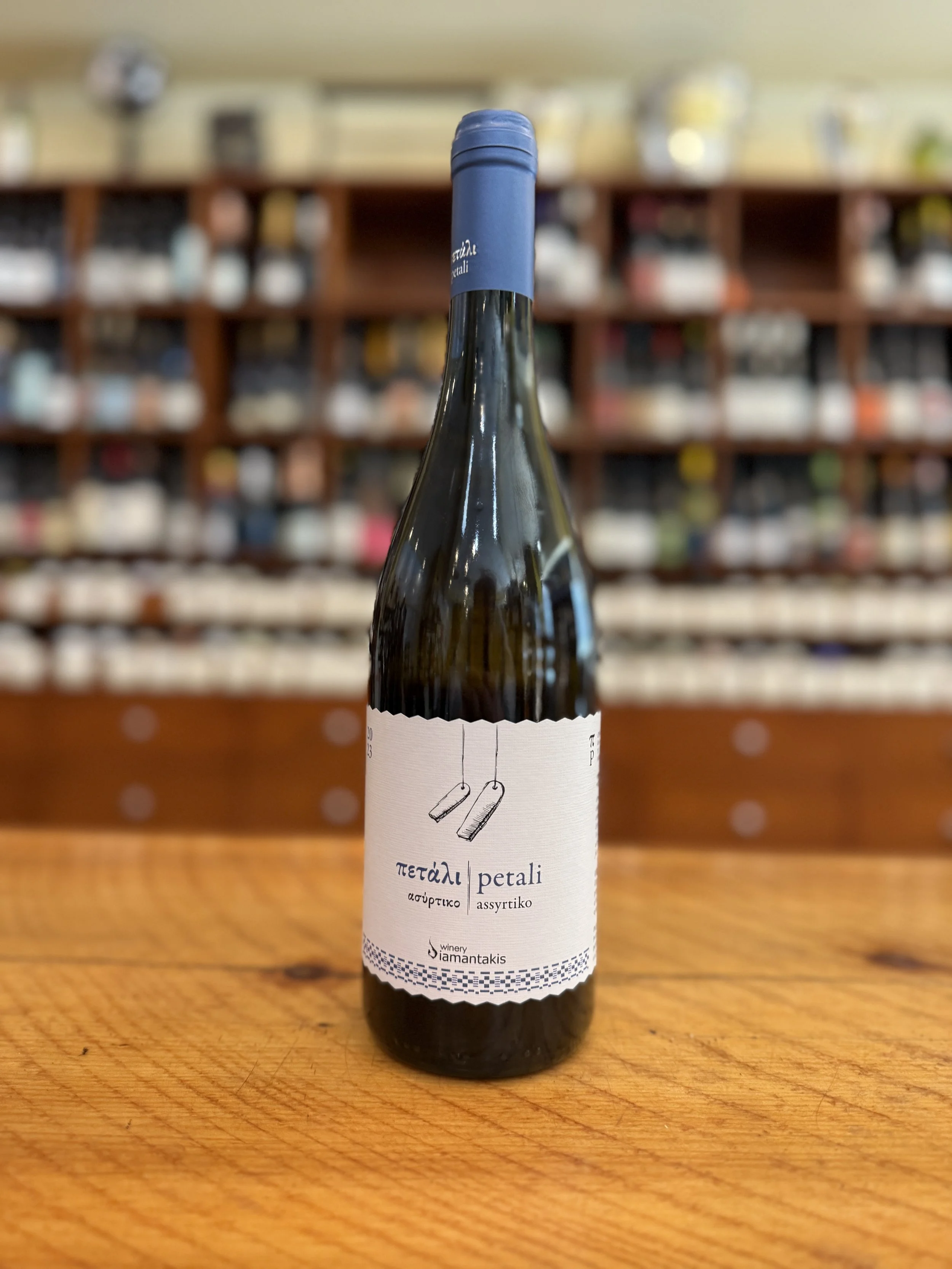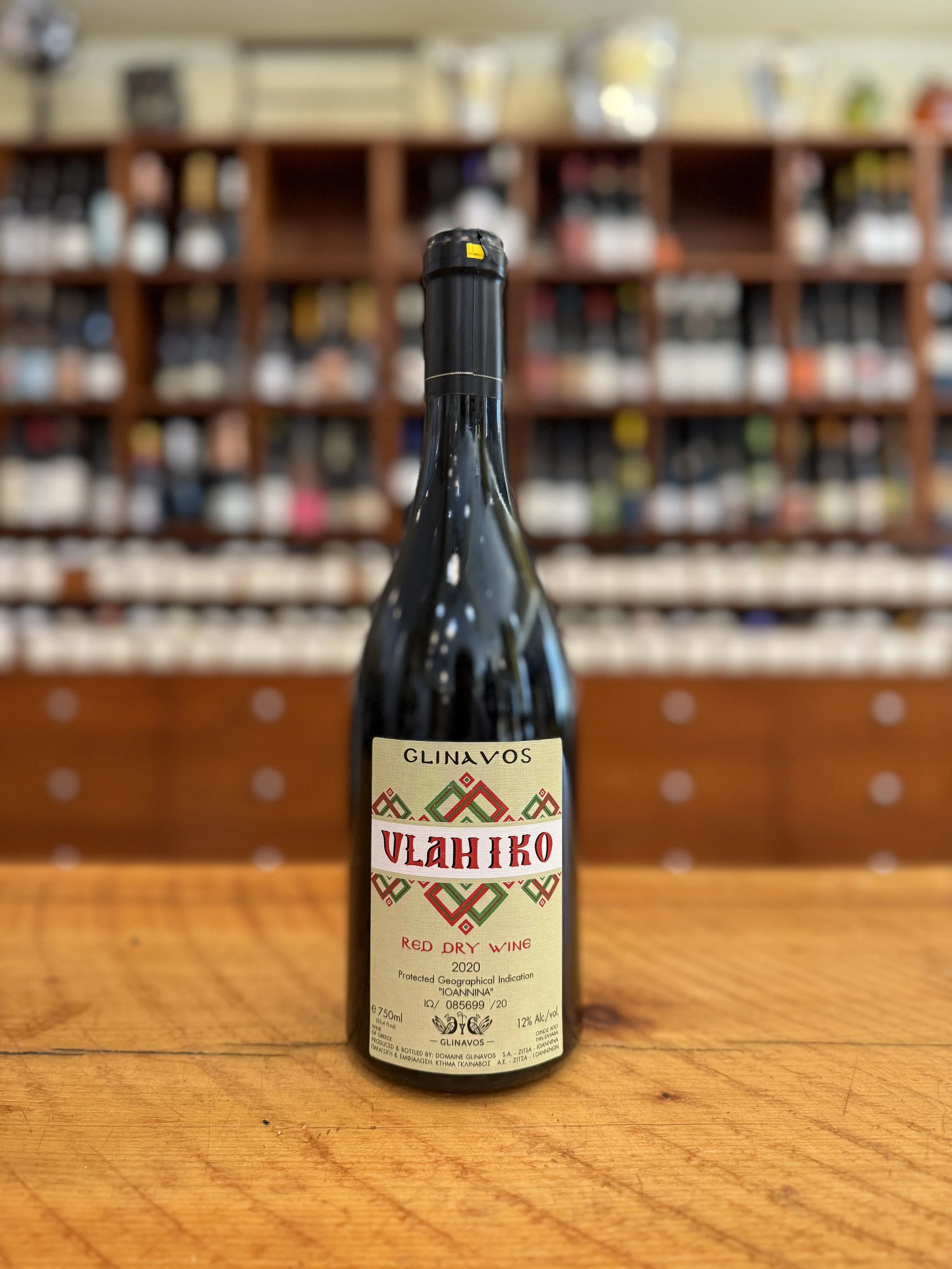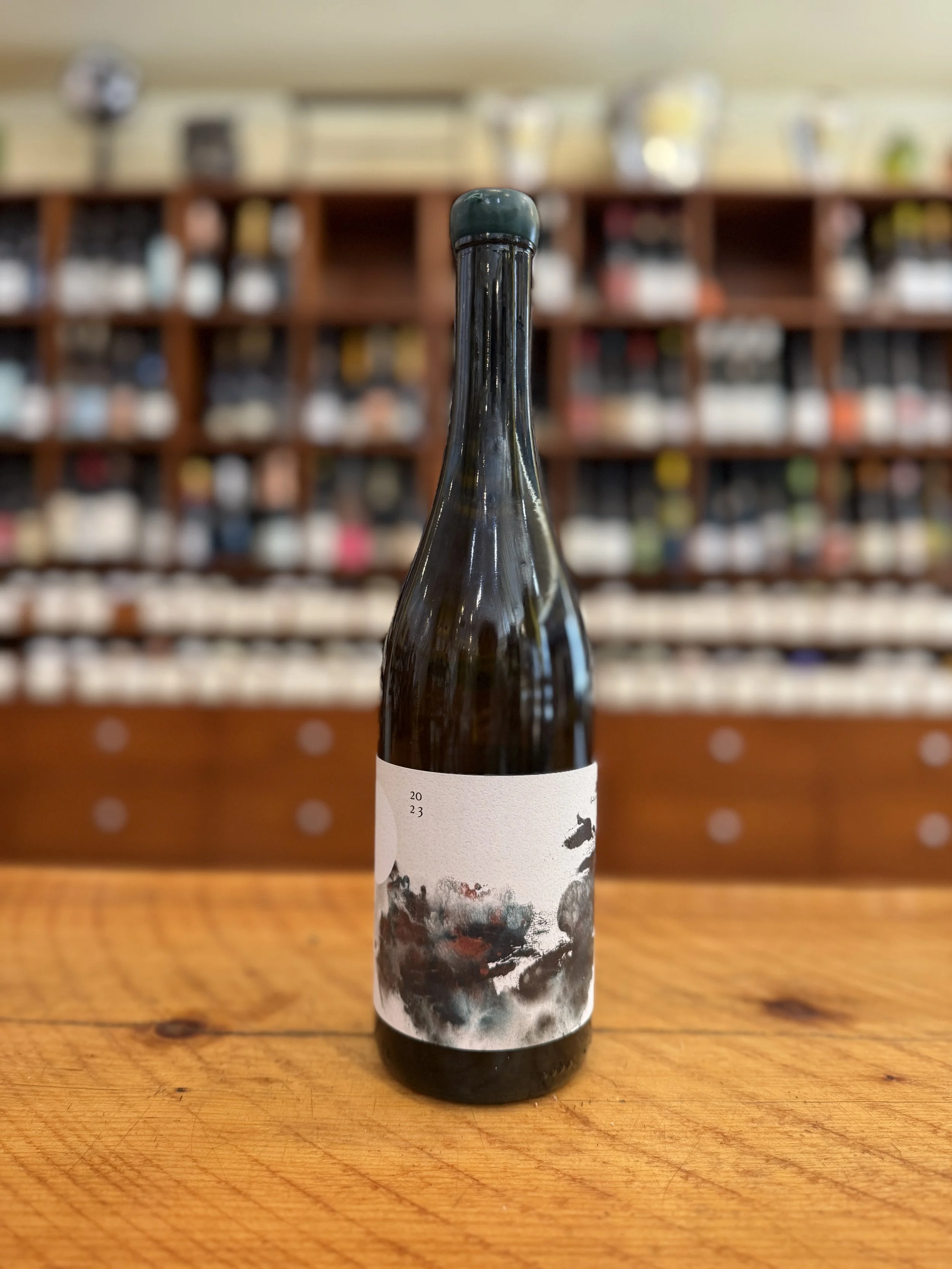
April 2025
Greek Retreat
Bacco’s Wine Club
April 2025
This month, amidst the chaos of tariffs and what lies ahead, I'm returning to one of the countries where wine began: Greece.
Once the cradle of Western civilization and democracy, Greece is overlooked in its contribution to the cultural history of wine - perhaps in no small part due to its love of Retsina, a pine-infused wine that isn’t for everyone. This controversial libation, alongside a more chaotic recent history and a relative dearth of distribution, has delayed the renaissance of Greek wine stateside, but the quality has been there all along.
Diamantakis Petali Assyrtiko
Psiloritis Foothills
Kato Asites, Dafnes
Crete
Farming: Sustainable, Practicing Organic
We start where some of the earliest foundations of Greek civilization began—Crete, the land of the Minotaur, and home to the grape that helped put Greek wine back on the map: Assyrtiko.
While it hails from the volcanic island of Santorini, Assyrtiko has found a natural home in the rugged, sun-drenched hills of Crete—specifically at Diamantakis Winery, nestled in the foothills of Mount Psiloritis, just southwest of Heraklion in the village of Kato Asites.
Winemaking on Crete dates back nearly 4,000 years, to the time of King Minos and the Minoan civilization, one of Europe’s first advanced cultures. The island’s central role in Mediterranean trade helped Cretan wines spread far and wide, reaching prominence in the Middle Ages through their sweet, fortified expressions.
While Santorini’s Assyrtiko is prized for its bone-dry, volcanic-driven minerality, the softer climate and diverse soils of Crete bring a gentler edge to the grape—adding dimension through herbal and floral nuances.
Pale straw in the glass with silver flecks, this Cretan Assyrtiko opens with a lifted bouquet of lemon blossom, sea spray, and a whisper of wild Cretan dittany—an herb-flower hybrid that evokes the island’s sunbaked hillsides.
On the palate, it crackles with bright acidity, delivering notes of green citrus, white peach, and a subtle saline edge. The finish lingers with clean, mineral tension, threaded by delicate hints of thyme flower and crushed limestone, transporting you to a rocky terrace overlooking the Libyan Sea.
Domaine Glinavos
Vlahiko
Zitsa
Epirus
Greece
F arming: Practicing Organic/Sustainable
We head to the northwest frontier of Greece—Epirus—a land of swirling mountain mists, craggy limestone peaks, and stone-built villages where traditions linger like the scent of firewood. Far from the whitewashed postcards of Santorini, this is a different Greece—earthier, quieter, wilder.
Amid this cool, rugged terrain lies the appellation of Zitsa, home to Vlahiko—a grape so rare it exists almost nowhere else. Indigenous to the region and seldom bottled on its own, Vlahiko is a red grape for those who seek the unfamiliar: wines that whisper stories rather than shout slogans.
Domaine Glinavos, founded in 1978 by Lefteris Glinavos, was among the first to see the potential in this quiet native. Trained in Bordeaux but rooted in Epirus, he championed forgotten varietals and elevated local winemaking traditions with intention and care. His son Thomas now continues that work.
Glinavos’ Vlahiko is a study in subtlety: pale ruby in the glass, it opens with aromas of tart cherry, forest berries, and the floral lift of dried rose petals. There’s a through-line of mountain herbs and cool stone, like a breeze off the high slopes. On the palate, it’s light-bodied but firm, with a vibrant acidity that nods to its altitude and alpine home.
Vlahiko’s restraint makes it incredibly food-friendly—the kind of wine that doesn’t overpower, but elevates. In Epirus, it’s poured with mushroom and wild herb pies, slow-cooked lamb with cinnamon, or rustic pork and leek stews. It’s also beautiful with grilled trout, lentils, or dishes kissed with warm spices and olive oil.
If Xinomavro is Greece’s answer to Nebbiolo, Vlahiko might be its echo of Pinot Noir—not in flavor, but in spirit: subtle, site-driven, and soulful. The kind of wine that rewards attention and lingers in memory long after the glass is empty.
In a world obsessed with boldness, Vlahiko is a rare and welcome whisper.
Kontogiannis Family
Korinthia Savatiano Mangata
Acorinth
Peloponnese
Greece
Farming: Organic, Biodynamic (Certified)
As the sun sets over the rugged hills of Ancient Corinth, a soft glow bathes the vineyards of the Kontogiannis Family—a vineyard rooted in both history and the pursuit of sustainability. Nestled between the iconic Corinth Canal and the vast expanse of the Saronic Gulf, this land is more than just soil and vines; it is a place where past and present converge. Known for its pivotal role in ancient Greek history, Corinth is a landscape shaped by both myth and agriculture, where the Savatiano grape has thrived for centuries.
The Kontogiannis Family has cultivated this land for generations, and since 2006, they’ve embraced biodynamic farming practices to ensure their wines reflect the purest expression of their environment. This commitment to the land is mirrored in their wines, which capture the essence of the Peloponnese—an area where nature, tradition, and innovation intertwine.
The Mångata Savatiano, named after the shimmering "moon road" that stretches across the Gulf on clear nights, is a testament to the unique terroir of this region. The vineyards sit at an altitude of 300 meters, where cool evening breezes from the Aegean Sea help preserve the natural acidity of the grapes, essential for the wine's balance and freshness.
This white wine, made from 50-year-old Savatiano vines, is a shining example of what’s possible when tradition meets innovation. Hand-harvested and wild-fermented in stainless steel, the wine ages on its lees for seven months, developing a complex texture and subtle complexity. The result is a pale lemon-colored wine that opens with aromas of bergamot, lemon zest, pear, and chamomile, while the palate reveals flavors of lime, unripe pineapple, and a delicate hint of dough—echoing the rolling hills and coastal winds that shape the landscape.
On the palate, the wine is medium-bodied with a discreet acidity and oily texture that carries the flavors gracefully through a long, mineral-driven finish. There’s a sense of sea breeze woven through the wine, linking it to the Gulf below, and a faint herbaceousness that speaks to the land’s wild flora. It’s a wine that mirrors its environment: elegant, balanced, and imbued with the character of its birthplace.
The Mångata Savatiano is a natural partner for the vibrant cuisine of the Peloponnese. Pair it with fresh seafood like grilled octopus, sea bass, or shrimp saganaki—the wine’s zesty acidity and mineral notes will enhance the dish’s bright flavors. For a more rustic match, try it with roast chicken, vegetarian dishes like stuffed grape leaves, or even the classic Greek salad, where the wine’s complexity elevates the freshness of the ingredients.
In the world of Greek wines, the Mångata Savatiano is both a nod to the past and a step forward into the future—a biodynamic tribute to the land and the legacy of Ancient Corinth. Every bottle tells the story of this remarkable region and the family’s deep connection to it.



